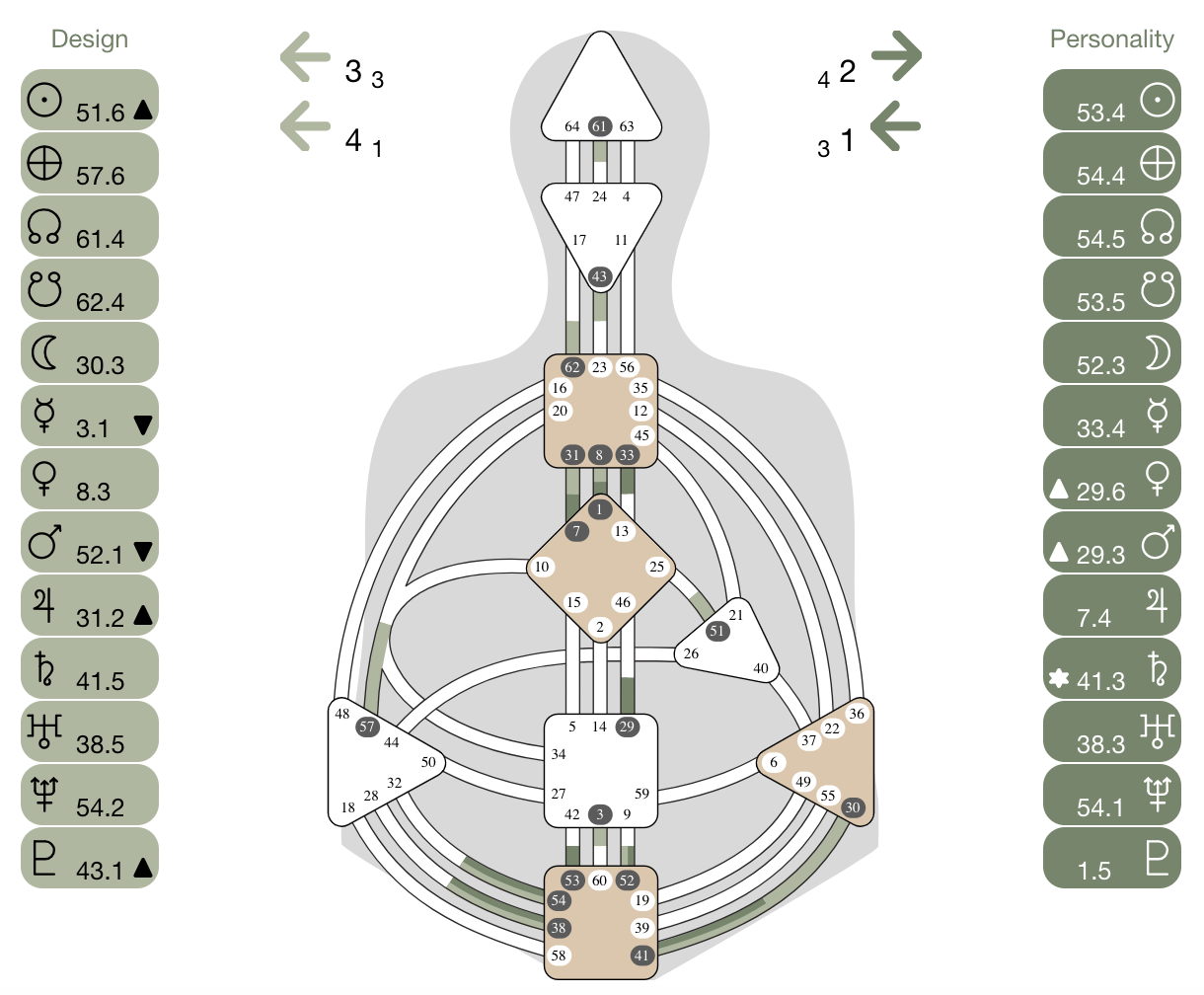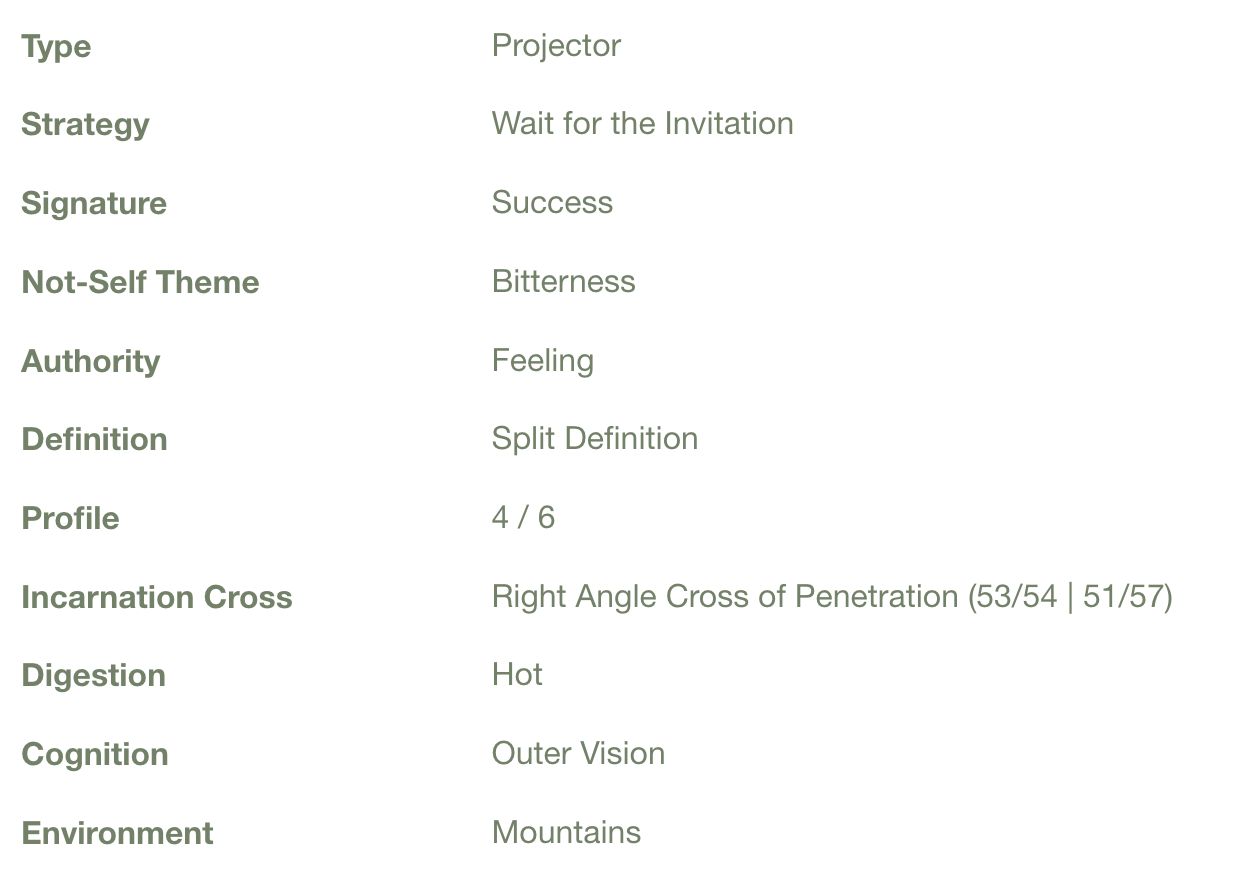What is Human Design?
Human Design is a relatively new system of personality analysis that combines elements from several ancient wisdom traditions and modern science to offer a unique approach to understanding human behaviour, relationships, and potential. Developed in 1987 by Ra Uru Hu (Robert Allan Krakower), Human Design integrates principles from the I Ching, astrology, Kabbalah, Hindu-Brahmin chakra system, and quantum physics to create a comprehensive map of an individual's energetic blueprint.
Here’s an example of my Human Design Body Graph Chart
And a summary of my chart properties.
At the heart of Human Design is the BodyGraph (above), a visual representation that depicts how a person is designed to interact with the world around them. This graph incorporates 64 Gates (hexagrams from the I Ching), corresponding to specific traits and tendencies. Each person's BodyGraph is determined by their birth data, revealing their energetic design through the placement of gates and channels, defining their strengths, weaknesses, and potential for growth.
Human Design categorises people into one of five distinct Energy Types: Manifestors, Generators, Manifesting Generators, Projectors, and Reflectors, each with its unique strategy for energy exchange and interacting with others. Understanding one's Energy Type can lead to insights into the most effective ways to navigate life's challenges and interact with others.
Beyond the Energy Types, Human Design delves deeper into Centres (areas of energy represented by geometric shapes i the BodyGraph), Channels, and Gates, providing layers of detail about an individual's personality and life path. These elements reveal how individuals are wired to give and receive energy, how they best make decisions (defined by Inner Authority), and how they perceive the world and their role in it (determined by Profile).
Human Design is often used for personal growth, enhancing relationships, and career planning, as it provides a framework for understanding one's natural talents and potential areas for development. It offers a personalised guide to living in alignment with one's true nature, emphasising the importance of self-awareness and authenticity in achieving fulfilment and success.
Despite its growing popularity, Human Design has its critics, who question the scientific validity and practical application of its teachings. However, many find value in the insights and clarity it can bring to understanding oneself and others, making it a fascinating tool for exploration in the realms of personality and human potential.


